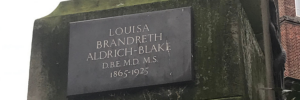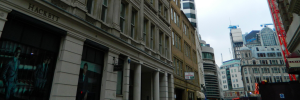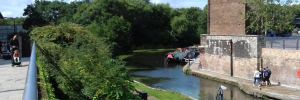Recently, when out on my Classical Composers in the West End walk, I was asked, ‘So how come the United Kingdom did not produce so many famous classical music composers as, say, Germany?’
This question came about because on my walk, where I tell the story of the development of classical music in London and specifically around the Strand and Covent Garden, I show how this country lacked ‘ big hitting’ composers in the 18th century. However, we more than made up for this by enthusiastic audiences and dedicated, accomplished musicians, and by welcoming foreign composers. These included George Frideric Handel, who came to stay in London in 1712 and Mozart who visited with his father and sister in 1764, and Haydn who visited, encouraged by the violinist and concert manager Salomen in 1791, 1795 and 1796, and even composed 12 symphonies whilst here !
We had of course, Henry Purcell, local boy, born in St Ann’s Lane, Old Pye Street, Westminster, born in 1659, but that was in a previous century, and it took until the later 19th century for things to look up as regards us producing numbers of internationally renowned classical composers.
A Classic FM study (note, no mention though of Irish, Welsh or Scottish), starts with Thomas Tallis (1505-1585), William Byrd (1539? or 1543-1623) and Henry Purcell(1659 -1695), all from the 16th and 17th century.
I have not been able yet to get to the bottom of why there is a gap in the 18th century, with the production of great composers , perhaps you have an idea?
Certainly, it took until the 19th century to establish music institutions such as the Royal Philharmonic Society, established in 1813, to campaign for a proper full-sized orchestra in London, and the Royal Academy of music and the Royal College of Music were established in 1822 and 1882, respectively, to educate musicians. By then more patrons for musicians had been established among the aristocracy and growing business classes in the United Kingdom.
The enthusiasm of London for example, for classical music, was evidenced by the many secular indoor and outdoor classical music venues, which were established from the 18th century to the end of the 19th century. All of these appear to have disappeared now, but were mostly in central London, such as the Pantheon, now the site of Marks and Spencer’s at the Tottenham Court Road end of Oxford Street, or the Hanover Square Rooms in Mayfair where Salomon introduced Haydn to London, and elsewhere in London, for example at Crystal Palace and the Vauxhall Pleasure Gardens.
Still, we lagged behind Germany, which was not a united country until 1871 or Austria Hungary, an unwieldy multinational state, which managed to produce such giants as Mozart, Handel, Bach, Beethoven, Schumann and Schubert, Mahler and Wagner, Mendelssohn among others!
Whether you know the answer or not, come on my walk and you might be surprised at the number of interesting classical music connections in the West End.



